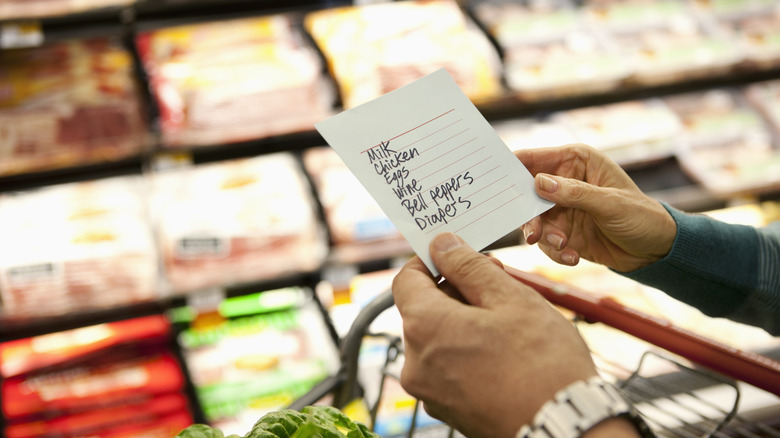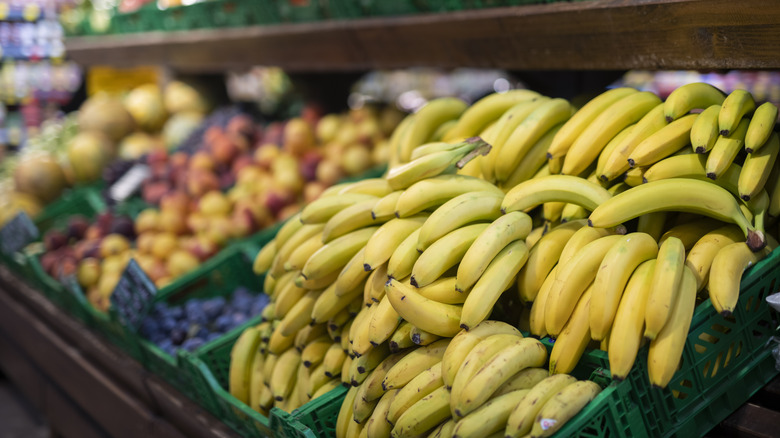How Will The Dockworkers Strike Affect Your Grocery List?
On October 1, United States dockworkers along a massive span of the East Coast and Gulf Coast initiated a strike over ongoing contract disputes including increased wages and the use of automated machines that could affect job security. It's estimated that nearly 25,000 dockworkers represented by both the International Longshoremen's Association and the United States Maritime Alliance are currently participating, with the strike affecting 36 total ports across the country, from Baltimore to Houston, with others in Florida and New England impacted. It's the first dockworker strike of this scale in nearly 50 years.
Because the docks affected by the strike control a large portion of imported goods into the U.S., we may soon start to see a shortage of several foods like bananas at local grocery stores. In the case of the fruit, the ports that are on strike handle 75% of the banana supply in the U.S. according to the American Farm Bureau Federation (as reported on by the Associated Press). So, if the strike continues over multiple weeks, goods will likely spoil and cause massive profit loss, along with delays to grocery stores since ships with goods would need to be diverted to the west coast. It has also been reported that imported coffee and alcohol products are likely to experience shortages due to the strike.
With dock workers claiming that they are willing to strike for as long as it takes until their demands are met, a long-term strike may be inevitable, which could begin to affect imported perishable groceries like meat and dairy, along with imported spices. However, officials have claimed that drastic shortages are unlikely and there is currently no need for consumers to begin panic-buying because of this development.
Most of your grocery list will likely not be impacted
Before you start buying bananas and coffee pods in bulk, rest assured that your local grocery store is not likely going to experience major shortages due to the current dockworkers' strike. Supply chain management expert Jason Miller told The New York Times, "The vast majority of food consumed in the United States is manufactured domestically ... meaning grocery shelves will still be stocked." Plus, other news outlets have reported that grocery stores have been preparing for this development by stocking up on goods.
What's more likely than shortages is that goods on your grocery list could be impacted by a slight uptick in price if the strike is prolonged. It's estimated that even just one week of labor interruptions could have a $3.8 billion impact on the economy and could trickle down to increase the cost of affected foods. For now, a vast majority of goods will still be available for purchase as normal, with the most notable exception of bananas. In the coming weeks, you may want to research ways to properly store bananas to slow down their quick ripening process, just in case.


